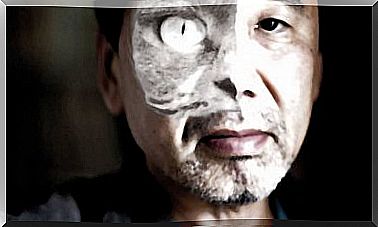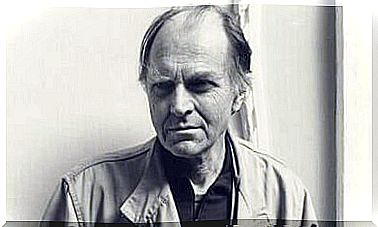The Fear Of Swimming Upstream

Being accepted by others is an instinctive and deep need. We human beings are sociable by nature, willing to interact in interest groups, and saddened by their marginalization. When we are excluded, an ancient alert is activated deep in our brain. We know that if we are alone, we are more vulnerable to any approaching danger. Hence the fear of swimming against the current.
Hence the risky tendency to join the masses without prior reflection. At first, it is terrifying to be left out of the dynamic in which others participate. It is like the announcement that we can fall into isolation and, with that, be subjected to risks more powerful than ourselves.
What is worrying about this fact is that there are times when the great social current goes against the reasonable and desirable. The most obvious example, which is always brought up, is that of Nazism. Many have joined this sickening and inhumane movement simply out of fear. Everyone was going in the same direction and, as absurd as it was, for many it was better to follow this current than to offer resistance.
This is not just the case with great historical facts. There are also an infinite number of everyday situations to which we can apply the same scheme. It happens, for example, in acts of school abuse, or bullying. Although many know that this behavior is reprehensible, they remain silent or join the aggressors just to avoid swimming against the current that prevails. What can we say about this fear? Is there any way to avoid it?
Swimming against the current: the fear of thinking and being different from others
In a way, we are all induced to create a character that represents us socially. This means that someone tells us how we should be since we were born. What we should and shouldn’t do. How should we behave. Not always, or rather often, this does not exactly coincide with what we want to be or do.

To enter society and culture we need to “fake” ourselves a little. We must respect the queues, even if we don’t want to. Or learn to eat with napkins, even if it seems useless or too complicated. It is the price we must pay to be accepted into a particular social group. That’s why, in part, when we’re in society, we play one or more characters.
Why do we end up accepting these game rules? Simply because, if we don’t, we get a rejection or a disapproval in return. Others are unwilling to accept that we do whatever we want and tend to demonstrate subtle and powerful resistance to any stance other than that advocated by the group.
They impose limits that are not always explained or understood. At first, we learn to behave according to what other people’s norms dictate, because we are afraid of the suffering that can come from not doing so.
Growing up is developing autonomy
Some people have never had the opportunity to get beyond the childhood stage. When we are children, adults rule. We get used to obeying, usually without knowing why. The good and the bad are passed on as the only truth, in our opinion, which counts for very little.

Growing up means understanding the reasons for the norms, limits and restrictions. It also means deciding to what extent it fits our will or not. And then act accordingly. To achieve all this, it is necessary that we have lost the fear of thinking for ourselves. That we’ve explored who we are, regardless of the character we’ve learned to play.
Recognizing ourselves as adults, we also find that we have the resources to oppose what we don’t agree with and swim upstream. But of course, we first need to know what we agree on. This makes up our convictions and the convictions are what give us the strength to go against the current if necessary.
Unfortunately, the process is not always complete. Sometimes a person chooses not to grow. It is hard work, which not only takes effort and repetition, but also courage. Not everyone is willing to walk the path between the constructed character and the real one. Not everyone wants to face the fear that comes with being able to be yourself face to face. Those who do, gain freedom. They also gain the possibility to program their destiny, the measure of reality that emerges for them.
Image credits: James Bullogh









